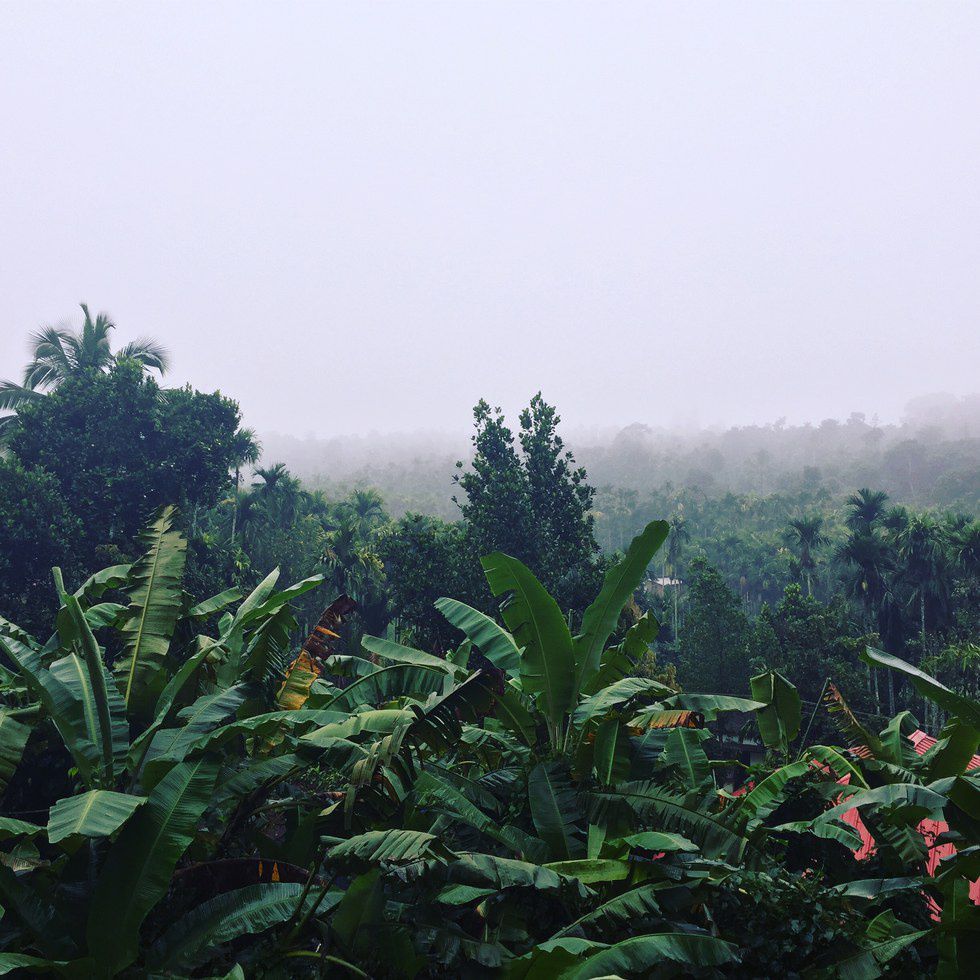International travel is quickly becoming the popular new thing, right up there with collecting vinyl, wearing big-framed glasses and skinny jeans. The resources available to young adults these days are making it cheaper and easier than ever before. Between the new discount travel websites, inexpensive hostels and study abroad options, young adults have countless opportunities right at their fingertips. Before you begin planning your trip though, it is important to find out where you should go, and where you shouldn't.
1. You will never be able to eat Indian food in the U.S. like you did before.
Anyone who has ever spent time in India can relate to the struggle of having people back home say, “Oh, I love curry/chicken tikka masala/naan so much!" If you go to India, you probably will, too, but not in America. No matter how hard you try, you will never find Indian food in the U.S. that tastes as good as in India. You will also never find most of the foods you actually ate there on a regular basis. You just won't. If you don't want to fall in love with real Indian food, don't go to India.
2. You will constantly be asked about the Taj Mahal.
If you go to the Taj Mahal while in India, people will be thrilled. If you don't, they will inevitably display reactions of disappointment and bewilderment, and may even ask, “Well then, what did you see?" India is a country of more than 1.2 million square-miles and has an estimated population of over 1.275 billion people. It is the seventh-largest country on earth by land mass and the second by size. There is a lot more to do and see than just visit the Taj Mahal. If you don't want to experience an amazing and gloriously unique country and not just tick off another tourist attraction from your bucket list, don't go to India.
3. People will make comments about how crowded it must be.
Yes, there are lots of people. Yes, they have some huge cities. It is also possible to take a six-hour train ride during which you will stare at nothing but seemingly uninhabited rice paddies stretching on for miles on end. If you don't want to try to explain this to people, don't go to India.
4. People will ask about every stereotype you have ever heard, and you won't know how to respond.
Is it dirty? Yes. Did you see a lot of poor people? Yes. Is it safe to drink the water? I wouldn't recommend it. Did you see any festivals? Yes.
After coming back from India, people will ask question after question, and that's understandable. People are curious about places they've never been to. If you want, you can answer most of the questions with a simple yes or no. If you go to India, though, odds are that you will want to say so much more. Yes, pollution is a serious problem, but it is everywhere else, too. Despite the pollution, India is one of the most beautiful countries you may ever visit.
Are there lots of poor people? Unfortunately, yes. There is also unbelievable wealth. In a list of countries with the most billionaires in the world, India comes in fourth. It is behind the U.S., China, and Germany. Despite this, 50% of Indians don't have proper shelter, 70% don't have access to decent toilets, 35% of households don't have a nearby water source, 85% of villages don't have a secondary school, and over 40% of these same villages don't have proper roads to connect them. If you go to India, you may want to say something like that in response to questions about poverty, but you may not know how.
When people ask about festivals, you could likely respond that yes, you did see a few. It's also likely that they won't know what festival you're talking about, and even more likely that they have no idea about the significance behind any of the festivals. They are probably thinking about the Holi festival and the bright colors associated with it. If you go to India, this question may be harder to answer than the others, because of the many layers that go into it. Religion, respect, and cultural appropriation are all big issues with this question, and if you go to India, they will all be ones that plague you constantly. Upon coming home, you will find cultural appropriation almost everywhere you look, and much of it will be unintended and therefore harder to explain. You will struggle to not only help other people to understand, but to fully understand on your own what it means to be respectful of another culture. If you ever go to India, you may have trouble answering questions about it at all.
5. You will never, ever be the same as you were before.
As the poet Oliver Wendell Holmes said, “A mind that is stretched by a new experience can never go back to its old dimensions." With travel, this seems to be especially true, and India is no exception. India is a country capable of challenging you in more ways than you thought possible, and of making you reconsider your place in the world like never before. Don't ever go to India unless you're ready to be changed for good — and probably for the better.




















